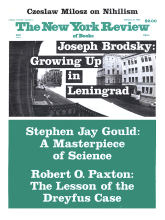Listen: the laurelled poets
stroll only among shrubs
with uncommon names: ligustrum, acanthus, box.
What I like are streets that end in grassy
ditches where boys scoop up
a few famished eels from drying puddles:
paths that struggle along the gulleys
then dip down among the tufted canes,
through the orchards and into the lemon grove.Better, if the gay palaver of the birds
is stilled, swallowed by the blue:
clearer now, you take in the whisper
of friendly branches in that air, barely astir,
the sense of that fragrance
so bonded to the earth,
that rains its restless sweetness in the heart.
Here, by some miracle, the war
of tugging passions is hushed,
here even we the poor divide the riches of the world—
this fragrance of the lemon trees.See, in these silences when things
forget themselves and seem almost
to betray their final secret,
we sometimes expect
to discover a mistake of Nature,
the dead point of the world, the link that won’t hold,
that thread which, disentangled, might lead us at last
to the center of a truth.
The eye rummages,
the mind pokes about, unifies, divides
in the fragrance that grows
as the closing day languishes.
These are the silences in which we see
in each departing human shade
some surprised Divinity.But the illusion dies, time returns us
to the roar of the cities where the sky appears,
patches of blue, high above, among the cornices.
Then the rain wearies the ground; over the houses
winter’s tedium thickens,
the light grows niggardly, the soul bitter.
And, one day, through a gate half-open,
among the trees in a courtyard,
you see the yellows of the lemon trees;
and the heart’s ice thaws,
and songs
come pelting into the breast
from trumpets of gold, all
light.
(1921–1922)
This Issue
February 27, 1986



